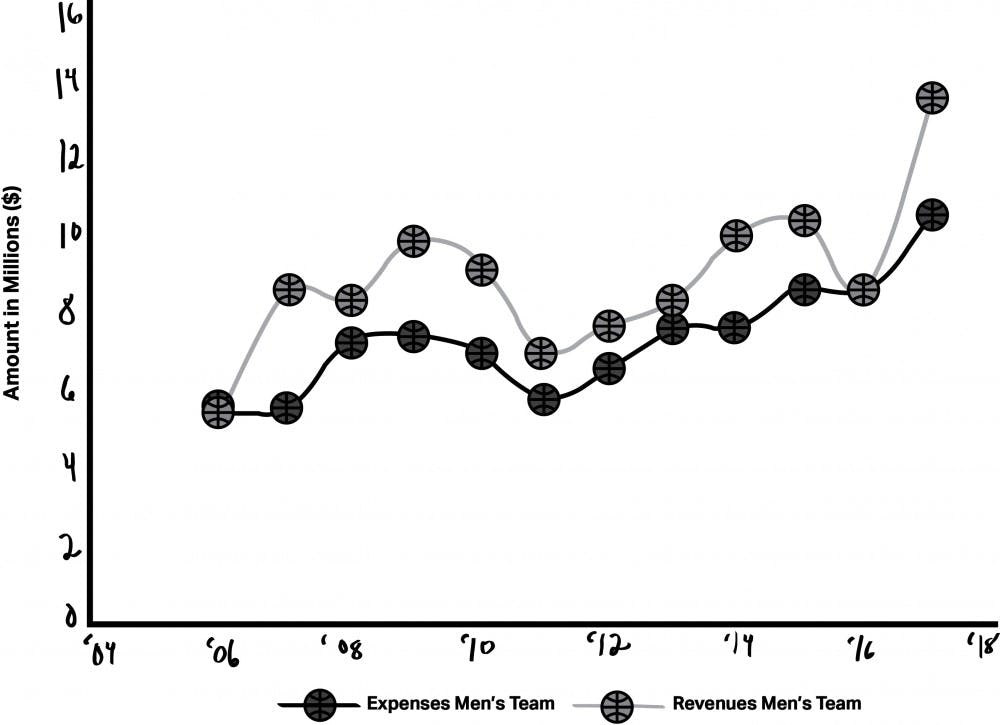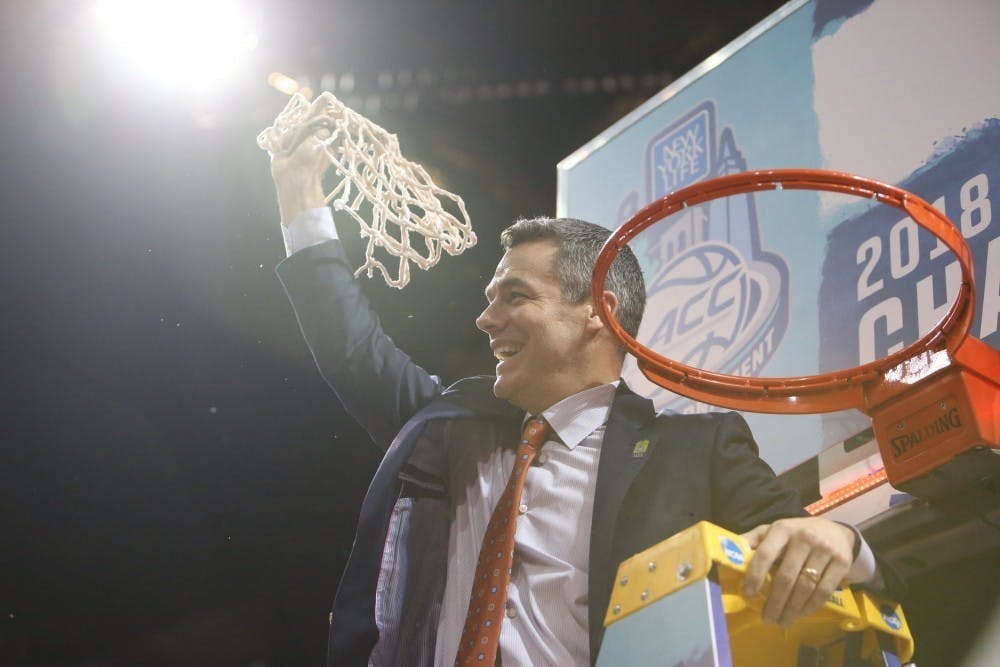The University’s men’s basketball team will compete in the NCAA Division I Men’s Basketball Tournament Friday for the seventh time in the last eight years with the potential to impact admissions and raise money for the University’s athletics department.
Although the funds earned for participation in the tournament will not be known until after the tournament is completed, it is expected to be around $282,000 per game — a 3 percent increase from last year.
According to Jim Daves, the assistant athletics director for media relations at the University, the process for determining how much money goes to colleges is complicated.
“Bottom line, the more ACC teams win and advance in the tournament, the more benefit to the league membership, including teams not participating in the tournament,” Daves said in an email statement to The Cavalier Daily.
He added that Division I conferences get paid in “units” — a fixed amount of money that rises three percent annually. In 2018, the worth of a “unit” was approximately $273,500, according to the NCAA.
Daves said he had “not seen a value for the units for this year’s tournament.” However, by increasing the past years’ value 3 percent — the typical increase — a unit in 2019 will be worth roughly $282,000.
An Atlantic Coast Conference member team could then potentially earn $1.41 million for the Atlantic Coast Conference over a one-year period by winning the entire tournament.
The total monetary value of each unit is then distributed by the conference in whatever manner it chooses, though the NCAA urges that it be distributed evenly. Daves said this means teams in strong conferences who do not enter the tournament can still reap the benefits of their conference’s success.
In 2018, the ACC split the money equally between all teams, including the ones who did not make the tournament.
According to Daves, the money brought in by the tournament is considered “athletics revenue” and henceforth goes back into the athletics program at the University.
Based on an analysis of the revenues and expenses of the University’s men’s basketball team, revenue spikes after good performances. For example, revenue increased when U.Va. reported their 2017 earnings, which followed a 2015-2016 season as a number one seed and a 2016-2017 season as a number five seed.

Graphic by Tyra Krehbiel
According to Assoc. Dean of Admission Jeannine Lalonde, the exposure the University gets from competing and advancing in the tournament can also potentially lead more students to apply to U.Va. next year.
“There are so many factors that go into a student’s college decision,” Lalonde said in an email to The Cavalier Daily. “I could see the coverage of our students and community during the NCAA tournament inspiring prospective students do more research about the University, but I don’t think there’s any data showing that UVA appearing in the tournament causes higher application or yield rates.”
Lalonde was able to recall a couple of instances where the University’s basketball team was mentioned in an admissions context.
“I have had prospective students and parents compliment the students on the basketball team while I’ve been at college fairs or evening programs,” Lalonde said.
Lalonde pointed to other Virginia colleges, such as George Mason University and Virginia Commonwealth University — which made runs into the Final Four in 2006 and 2011 respectively. In both of the years following their tournament successes, the number of freshman applications increased.





